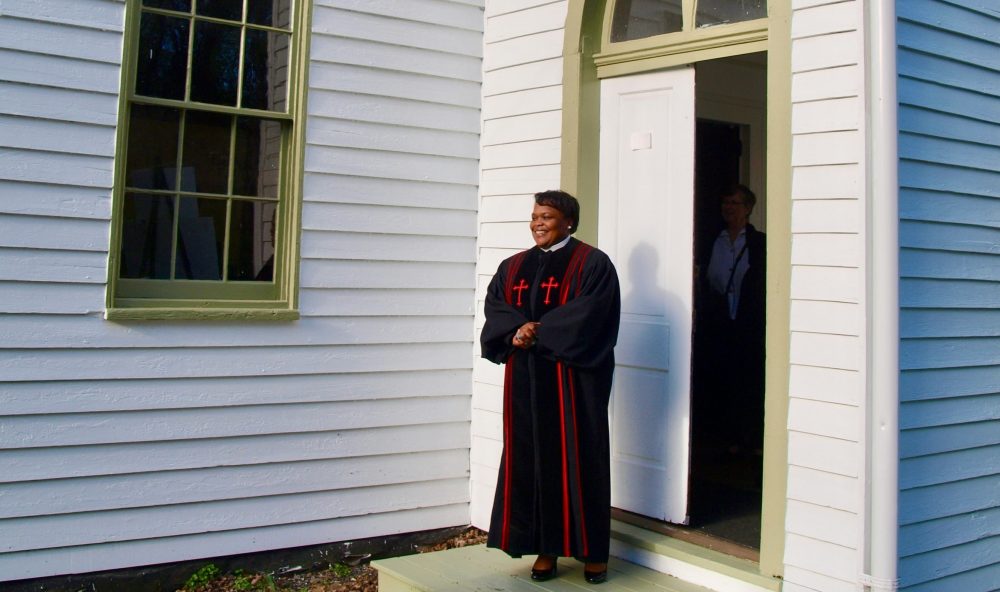
The work of ministry has shifted tremendously in the last 50 years. In the 1970s, pastors in the U.S. led tightly knit communities whose members mostly lived in proximity to the congregation. The primary focus of a pastor’s time was preaching and pastoral care. The gold standard of technology would have been a state-of-the-art copy machine or an IBM Selectric typewriter.
Today, congregations still look to the pastor for preaching and pastoral care — and so much more. Depending on the size of the church, the lead minister might be involved in financial oversight, staff supervision, program planning and community advocacy. In smaller congregations, the pastor might be the most technologically savvy person on staff. This means taking responsibility for recording worship services, updating the website and posting social media content.
What has not changed in the last five decades is the critical need for authentic pastoral presence. Doing the work of a pastor isn’t always about solving a problem. Sometimes our work is priestly. Sometimes it’s prophetic. Often, however, it’s just about being present. Pastoral presence is a stabilizing force in an anxious congregation. It’s manifested in the silence during a late-night visit with a parishioner in the hospital. It’s the voice that speaks a holy, transcendent word when everyone else in the room becomes frustrated and cynical.
Ministers learn to cultivate this leadership posture with time, experience and prayer. If we have good mentors, we also develop pastoral presence the old-fashioned way — by imitation. The work of ministry continues to be transformed by several factors, including the increasing secularity of American culture. Yet for those who are called to do this work in this historical moment, the church — and the world — still needs them to show up as those who have been sent by God.

Prince Rivers
Editor, Alban at Duke Divinity
Resources
Mariann Edgar Budde’s national prayer service homily falls within the prophetic tradition
The bishop of the Episcopal Diocese of Washington preached to a nation at a crossroads with a call to faithful witness, writes a director of programs and grants for Leadership Education at Duke Divinity.
By Mycal X. Brickhouse
What we can learn from the contemplative heart of the Civil Rights Movement
Howard Thurman and other civil rights leaders modeled how contemplation fuels action and action fuels contemplation.
By Michelle T. Sanchez
Pastors are uniquely positioned to help people contemplating suicide
By offering honest talk, a sense of belonging and hope, clergy can help prevent suicides. New research and resources debunk assumptions and point to actions that address this growing problem.
By G. Jeffrey MacDonald
Pulpits in the public square
Countless potential pulpits — places of community service and leadership — exist outside the church, says a Vermont pastor, school board member and active community volunteer. But will clergy look up from the busyness of day-to-day ministry to embrace them?
By Jason R. McConnell
Why I offer “free prayer” in a coffee shop
A pastor’s first job is to “take care of our people,” writes a Lutheran pastor. Sometimes, he has learned, “our people” are those we have never met.
By Thomas Rusert
P.S.
A few weeks ago, an elected official sent out invitations to a clergy breakfast. I prefer to spend my mornings writing and reading but I thought it was important to attend this event. After we spent about 90 minutes eating and discussing the state of governmental affairs in our region, the elected official began to wind down the discussion. Fortunately, the pastor sitting beside me remembered our real reason for being there. She asked the official, “Do you mind if we pray for you?” She acknowledged the difficult work this official does on behalf of the community and the need we all have for encouragement. The official looked genuinely relieved and accepted the offer of intercessory prayer.
That day, we discussed several complex political issues. In contrast, the prayers we prayed were simple and earnest. But I left the breakfast feeling like the most important thing we did that day was to stand and pray together as people called and sent by God. It was food for my soul.
You can always reach me and the Alban Weekly team at alban@duke.edu. Until next week, keep leading!





